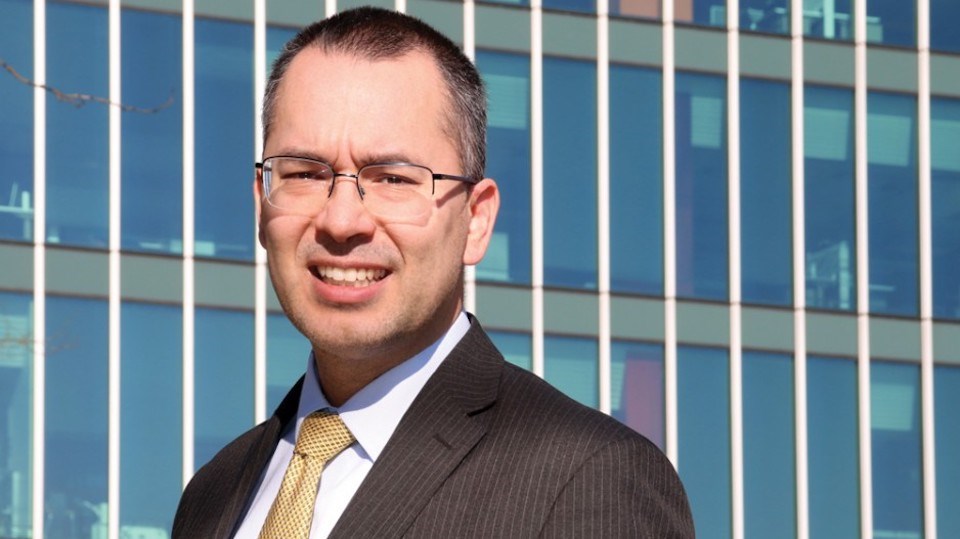The COVID-19 pandemic has been a boon for Vancouver law firms, as government’s attempts to slow the disease’s spread created a wave of change in most people’s lives.
Lawyers were needed in many cases to execute and formalize effects from these changes and to litigate disputes.
While the legal profession took a hit in spring 2020, when business in many sectors ground to a halt, demand for lawyers came roaring back later that year and continued through 2021, managing partners at multiple large downtown Vancouver law firms told BIV.
“The pressure is industry wide,” said Harper Grey LLP managing partner Jonathan Meadows.
“There has been more legal work being done, and finding more lawyers is probably something we may have to do – just because there is a lot of work.”
When pandemic-related health orders closed businesses or reduced capacity, executives laid off staff, and government support programs provided funding to those affected.
“We’re living in a world where you’ve had governments put a lot of money into the economy to try to stimulate it, and they have kept the cost of borrowing money relatively cheap,” explained Smith Legal Search managing partner Warren Smith.
Those low interest rates have led to more corporate acquisitions.
Central banks around the world have suggested that they will soon hike interest rates – something that has motivated executives to complete acquisitions or real estate purchases before borrowing costs rise.
“The reasons for each of the legal practice areas to see a lift may not necessarily be the same, but I think they’re all interlinked,” Smith said. “If you get right down to it, it is COVID-19 that created a chain of events in society that is having a ripple [in a range of legal subsectors].”
Corporate shutdowns led to firings, and some of those actions turned into wrongful dismissal lawsuits. Employers also had questions for lawyers about how to implement vaccine mandates for employees. Each of these scenarios created work for employment lawyers.
Smith added that stress from working at home or having reduced work hours strained some family relationships to the breaking point, resulting in a bump in demand for divorce and child-custody legal work.
Increased demand for legal work led to worldwide competition for lawyers and prompted some U.S. firms to offer large retention bonuses, Smith said.
News of that reverberated within the profession, and similar bonuses were subsequently offered in Toronto and then in Vancouver, confirmed Fasken Martineau DuMoulin LLP managing partner William Westeringh.
Smith estimated that Vancouver lawyers saw a 30 per cent bump in pay, including one-time bonuses, year over year in 2021.
Even that was not enough to keep some of them from going to the U.S., where newly called lawyers could make US$210,000.
He compared first-year legal associates to wine vintages in that there is finite supply. Once they leave the province, there is no way to mint more of them. Law firms have to wait until the next year’s class graduates.
Westeringh and Meadows did not quantify how much of a pay bump their lawyers received, but they said that the compensation increases were higher than average even before the retention bonuses were added.
“Raises were across the board,” said Westeringh. “It touches associates for sure, but also all legal staff. Partly the bonuses were offset just by how busy people were, as associates were also probably working, on average, more last year than most years.”
Some Vancouver firms responded to losing young associates to U.S. competition by offering associate positions to more articling students than usual.
Westeringh said Fasken normally offers associate positions to about 80 per cent of its articling students, so the bump in the percentage of those offers has not resulted in a huge number of new hires.
“We absolutely are trying to hire qualified people from smaller firms and mid-sized firms from the Fraser Valley,” said Westeringh, who oversees more than 155 lawyers at the province’s largest law firm.
“We’re growing both in Vancouver and in Surrey [offices].”
The trend of firms in larger North American cities hiring lawyers from smaller centres has been widespread, Smith said.
“When you boil it down, New York turned on a vacuum cleaner, and Abbotsford ended up with the problem,” he said.
The number of new lawyers in sa国际传媒 has been increasing, but then so has the population.
Statistics from the Canadian Bar Association’s sa国际传媒 branch show that at the end of 2021, sa国际传媒 had 13,485 practising lawyers.
That is up 3.3 per cent from the 13,049 practising lawyers in 2020.
It is yet to be seen how long lawyers will endure the increased workload, whether law firms will be able to recruit more lawyers and whether they will need more real estate to accommodate larger workforces.
The consensus in the sector seems to be that lawyers will continue to enjoy flexible work schedules that include more time working from home.
Westeringh doubts that his firm will seek additional real estate in the near future.
“There will likely be a better, more efficient utilization of space that we have, rather than expanded space,” he said.


